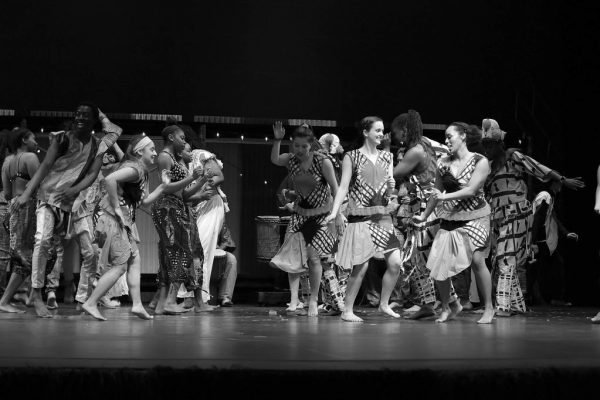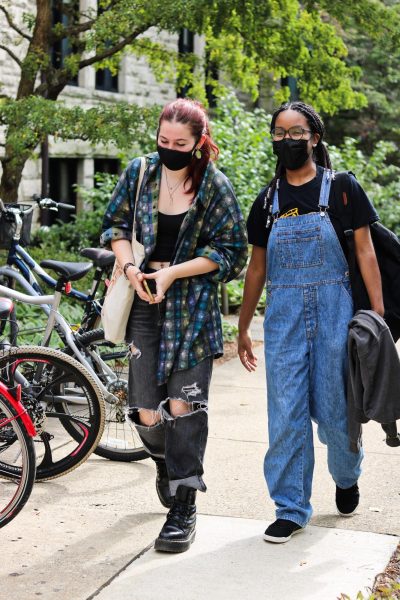Oberlin’s Mask Policy Out of Touch, Losing Authority
Leaving Oberlin can often feel like entering another dimension. In the rest of the world, most people don’t introduce themselves with their pronouns or use phrases like “aural skills” and “head cook” as part of their vernacular. And, for the most part, people outside of Oberlin don’t wear masks. When I went home for spring break, the near complete absence of masks in my hometown surprised me. I figured that a good percentage of people had stopped wearing them in the grocery store by now, but I began to question my habits when I saw people I respect going without masks.
By now, most of us know that Oberlin tends to fall on the cautious side when it comes to COVID-19 mitigation policies. Oberlin required outdoor masks last fall long after the world agreed that outdoor masking wasn’t necessary. Many people have had to perform masked when they probably didn’t need to. Some of these policies, along with the administration’s vague messaging around them, have been a source of legitimate frustration for many students. These guidelines have been criticized for being more performative than they are effective. Many times over the past two years, ObieSafe has made itself the butt of the joke for being too strict and out of touch with reality.
Currently, Oberlin still requires masks in all public and indoor spaces, including among small groups of friends, even though most local governments around the country have stopped requiring them anywhere. Oberlin’s masking habits are slowly starting to catch up with the rest of the country even though the rules aren’t. Some Oberlin students have gotten comfortable forgoing masks in public areas like libraries, restrooms, and food lines. While our rates of masking are still much higher than most places, I expect that this pattern will accelerate for the rest of the semester.
Despite this shift, masks are still important. We’ve all heard it a million times, but there are at-risk people all around us — immunocompromised people and parents of children under 5 don’t want our germs. COVID-19 also has the potential to cause considerable illness for anybody, even those of us who are vaccinated and boosted. At the very least, wearing a mask is good manners, just like saying “please” and “thank you.” We can’t control what the rest of the country is doing, but we still have a chance to make a difference for at-risk people in Oberlin.
If an area is open to anyone, masks should be required in that space so it remains accessible to truly everyone. This includes areas such as classrooms, libraries, and food lines, as well as those that have been subject to recent policy shifts such as dorm bathrooms and athletic facilities. I have faith that most Oberlin students will follow these rules. There will be more and more people that ignore them, but that doesn’t mean the rules shouldn’t exist.
However, masks should not be institutionally required for more private settings, such as small gatherings among close friends in dorm rooms. Currently, the College’s guidelines require students to wear masks during any gathering with those they don’t live with. Nobody adheres to this rule. ObieSafe’s mask mandates regarding small, informal gatherings do nothing to change student behavior and make the administration seem out of touch. These unrealistic guidelines also discourage students from following more legitimate mandates. Rather than maintaining the mask requirement for casual gatherings, Oberlin should implement an education and awareness initiative that encourages students to focus on communicating with each other and making smart decisions based on the situation. We should treat masking like any other issue that concerns respect and consent. A shift like this probably won’t change student behavior, but it would make ObieSafe strategies more in tune with reality.
Like most issues, the issue of mask mandates is complex. Mask mandates need to exist in Oberlin because their absence will hurt people in our community. It’s equally true that the Oberlin administration can’t expect unrealistic, far-reaching mask mandates to be sustainable if the world continues to move away from masks. I’m not here to propose a comprehensive plan that pleases all parties involved because I don’t think one exists. I merely wish to point out that cracks are starting to emerge in our current system, and we need to start thinking about a different plan.




